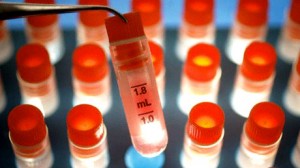 Don’t ever let anyone tell you that the Catholic Church is “anti-science” or against stem cell research. Actually, she is very much in favor of stem cell research, so long as tiny human beings are not created, used and destroyed in the process, and now she’s putting her money where her mouth is with regard to that support.
Don’t ever let anyone tell you that the Catholic Church is “anti-science” or against stem cell research. Actually, she is very much in favor of stem cell research, so long as tiny human beings are not created, used and destroyed in the process, and now she’s putting her money where her mouth is with regard to that support.
This week (November 9-11) the Vatican is hosting an international conference on adult stem cell research titled ‘Adult Stem Cells: Science and the Future of Man and Culture.’ The conference is part of the Vatican’s $1 million dollar collaboration with US based biopharmaceutical company NeoStem’s Stem For Life Foundation to support research and increase public awareness of treatment using adult stem cells. 350 scientists, religious figures, politicians, educators and industry representatives are scheduled to be in attendance.
At a press conference yesterday, Fr. Tomasz Trafny, head of the Pontifical Council for Culture’s science department, explained that the conference will seek both to publicize the achievements of medical science, and to reflect upon them from the perspective of the human sciences.
“We wish to raise some important and sometimes provocative questions”, he said, “such as whether the Hippocratic oath should be extended to all the life sciences, because today it is not only doctors but also laboratory scientists who have power to intervene in all phases of human life.”
Also at the conference, Dr Robin Smith, president of the Stem for Life Foundation and chief executive of NeoStem, explained how the use of adult stem cells avoids “the ethical dilemma posed by the use of embryonic stem cells. Adult stem cell research and therapy allows us to advance scientific knowledge while protecting every stage of existence”.
Adult stem cells can be found all throughout the body in places like bone marrow, blood, fat, skin, nasal tissue, etc… They are currently the only type of stem cell commonly used to treat human diseases and new breakthroughs are happening everyday. Click here to listen to an interview with Dr. Smith and to Fr. Trafny about this week’s conference, the ethical debate, and this promising research.



